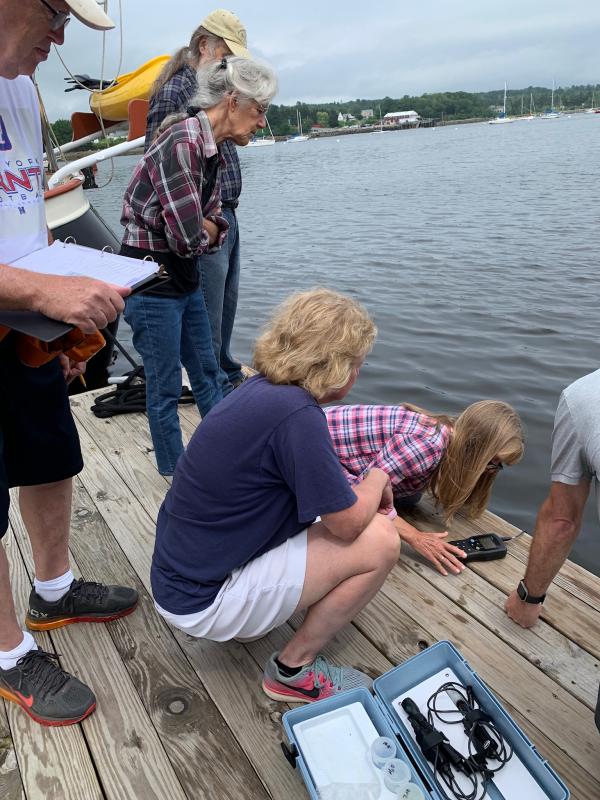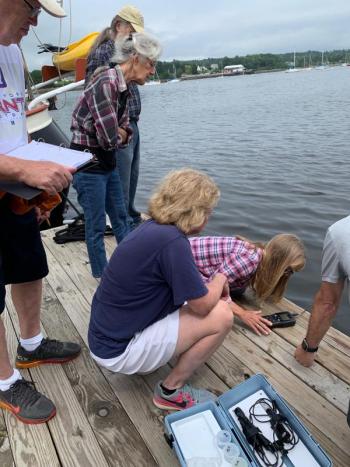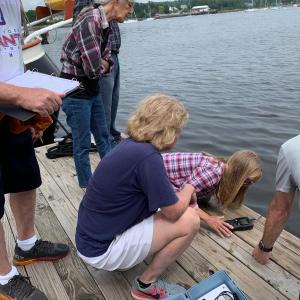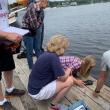Water quality monitoring of Belfast Bay has begun
BELFAST — Several Penobscot Bay stewards from the Belfast Bay Watershed Coalition (BBWC), trained by John Tipping, a BBWC board member, have begun monitoring various points in Belfast Bay.
Tipping has trained stewards to sample the bay at a high and a low tide, 6 hours apart, of the same day. This is done weekly at the town dock, the mouth of the Little River, and other planned places to be added.
Tipping is director of Lotic, Inc., in Belfast, a professional lab that tests effluent from sewage treatment plants around New England, and other water-related projects such as eel grass mapping and stream quality studies.
Organizing the volunteers and keeping track of trainings and findings is Leo Shea, a Penobscot Bay steward in his second year of monitoring.
The object is to establish a baseline understanding of water quality in the bay based on values of dissolved oxygen, conductivity, pH, temperature, and salinity over time. If the proposed salmon farm in Belfast is permitted by both the BEP and Maine DEP, BBWC will also be watching their data on public record.
Stewards participating in monitoring are committed to weekly readings using a professional test kit with 4 different probes and a handheld digital reporting screen.
“Thanks go to John Tipping for sharing his equipment, which we otherwise would not be able to afford, to Leo Shea for leading the Water Quality Team, and team members Sharon Besso, Joe Duggan, Paul DeOrsay, Sally Bennett, Barbara Bell, Susan Connolly, Susan Dexter, Caryn Converse, Martha Stamp, Paul Eagle, and Rick Fitzsimmons,” said the Coalition, in a news release.
Monitors do not have to be Penobscot Bay stewards. Anyone interested in helping with this effort by being a weekly or a substitute monitor should contact the BBWC website or email info@belfastbaywatershed.org
The Belfast Bay Watershed Coalition works to support conservation and stewardship of natural, scenic, and public access resources of the Belfast Bay watershed through research, community-building, and education.
Event Date
Address
United States





























